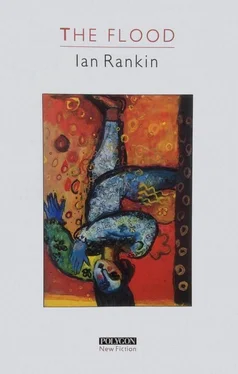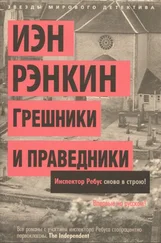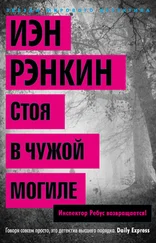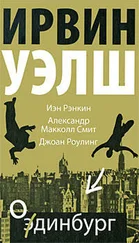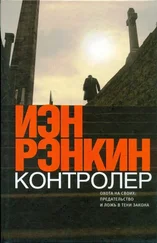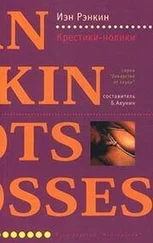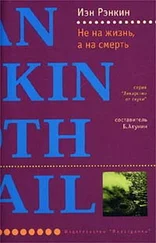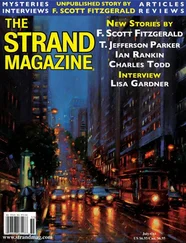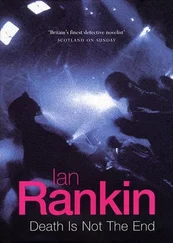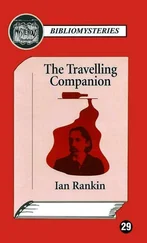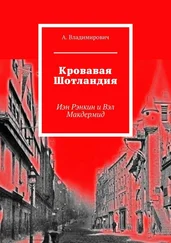She had a boyfriend too: a friend of Tom’s, though a year younger than him. She was not sure that she liked the boy, but he was older than her so she persisted with him. He would talk with Tom about emigrating, and Tom would listen keenly. When Tom said one evening at the dinner table that he was emigrating to Canada, Mary ran upstairs and locked herself in the bathroom. Tom sat the whole evening at the kitchen table talking with his parents. His father brought out a bottle of whisky and two of the good glasses so that they could discuss things in the proper tones. Tom’s mother was pale and silent. She studied her hands for most of the evening. The boy looked at her hands, hands capable of intricate weavings, and felt about to give in to their silent pressure. But this was not a decision that he had made easily. He had gone into it with various people, and had been in touch with an old family friend, Jimmy Gallacher, who worked in Canada and would put Tom up and see that he got a job in one of the sections of his own factory. A Scot, it was said, could always get a start in Canada. All Tom wanted now was the chance to try. He needed his parents’ consent, though, or the leaving would be all the harder. His father conceded to most of his points, while Mary coughed out her sobs as she sat in the bathroom.
That night, when Tom finally went to bed, having made sure that Mary had her back to him before he changed into his pyjamas, the whole house felt as though it had gone through a death. The air was full of a choking intensity.
There might have been a coffin on the table in the front room.
As soon as Mary heard the unmistakable creak of Tom’s bed and the rustle of the sheets being pulled up to his chin, she turned and sat up.
‘Are you really going, Tom?’ His hands were confidently behind his head, supporting him on the pillows. He had the look of a person who needed to do no more thinking, the look of a person who would not allow himself to go to sleep for some considerable time.
‘It looks like it. Will you miss me?’
‘Oh, Tom,’ she said, but could find nothing else to say, nothing that would have made any sense. It was a strange, tongue-tied feeling.
‘Well, that’s good,’ he said. ‘If I’m missed, it’ll make trips home all the nicer, won’t it?’ He chuckled. Mary hurried from her bed and knelt on the cold linoleum at the side of her brother’s bed. She was crying softly, the tears dredged up from some last ineffable source. His hands were in her hair, patting her, comforting her. He was struck dumb in a pleasing way. He had always been her big brother, but had never realised just what the bond entailed.
They sat together in silence for a time. Mary’s sobbing eased eventually, and a little later Tom thought that he had found some words for his little sister.
‘We’ve all got to make this decision sooner or later, Mary. You’ll have to make it yourself when you decide to leave home and get married or whatever.’
‘I’ll never leave here,’ she said, her eyes searching his for some weak point. Tom shook his head.
‘Come on,’ he said. ‘You’re fifteen. You’re not a baby any more. You’ll want to leave soon enough when you see what it’s like outside of school. Suddenly you’re not special any more. Your friends have all gone off to become mature adults in boring jobs. You’ve not got enough brains to get a really good job, one that would take you away from the area. So what’s left? The pits are closed. This town is becoming a dump. I’m not going to stay put in a dump. Not me. Maybe I’m not going to make anything of myself in Canada, but I’m not going to make anything of myself here either, so where’s the difference?’
‘But you’ve got us!’ Mary whispered in anger and frustrated love. Tom was silent for a moment, his eyes forced finally to turn away from those of his fiery sister.
‘Yes,’ he said, ‘but what happens when that’s not enough? When that’s not enough and I’m too old and weighed down to do anything about it? You won’t always be here...’
‘But I will, Tom, I will.’
‘... and Mum and Dad haven’t got more than ten or twenty years left, have they? Everybody dies, Mary. It’s the only fact of life.’
‘You’re sick!’ she shouted. He shrugged his shoulders.
‘Maybe I am,’ he said, closing his eyes.
Mary ran to the window and stood there, her blurred eyes staring out on darkness. The night was still. She used to be able to see the winding-wheel at the colliery from this window, but now it had been dismantled. A good home had been found for it in a mining museum in the Lothians.
An old man was shuffling past uneasily below her. He stopped and leaned against the lamp-post, seemed to gasp for breath, then finally forced himself to move off again, his shoes dragging over the pavement. Tom was speaking behind her. He was approaching the window. She did not want him to look out. She turned and went to hug him, and there they stood, in an embrace of silent childishness, until Tom’s feet got cold on the linoleum and he persuaded Mary to get back into bed.
It was a strange time, that autumn. Mary’s father was drinking quite heavily, though her mother tried to hide the fact from everyone and succeeded only in hiding the truth from herself. Hugh Miller would sit in his chair until the early hours of the morning. Then he would say that he was going for a walk and would not be seen again until late evening, dead drunk usually and shouting along the length of the street about the treachery of the National Coal Board, the dirty tricks, the cruelty of it all. Mary, horrified and in her nightdress, would watch him from her bedroom window. She would watch her mother, hair falling to her waist in preparation for bed, having to leave the house and manoeuvre the roaring drunk around the lamp-post, which threw a garish orange glow over the proceedings, lending to them the hazy quality of something happening on a screen. Mary would watch them weave their way into the house, would hear her father retching into the toilet bowl or the sink. Tom would breathe heavily, pretending sleep, his pillow over his head. Mary was sure that he saw it merely as a ploy to stop him from leaving, and this seemed to make him all the more determined.
‘What’s the use?’ her father cried. ‘What’s the use, eh? Where’s the reason in it? They’ve shut the pits and they’ve shut this and they’ve shut that. What’s a man supposed to do? No bloody use to anyone. That’s me.’ Mary’s mother would whisper with patient vehemence at him, and having got him into bed at last, a basin at his side, would look in on Mary and Tom, both of whom would be lying in shade and in heavy silence, a lack of even breathing, which would confirm their mother’s worst fears.
In the morning the pattern would be repeated. Mary grew sullen. A lot of things were to blame apart from her father’s new-found dependence. Some of it had to do with a large prevailing mood in the town. Teenagers there had been brought up in the Sixties, had been told of the good life to come. Now, the Seventies approaching, they were being shown something else, and were seeing at last that behind every promise lay the bad news. There seemed nothing left to hope for. Everything was slipping further and further away. They talked about nothing else at school. Yes, they discussed jobs and career prospects, but behind it all was the greater knowledge that somehow the decline of the town was pulling them down with it, as if the town and its offspring were a single, inseparable unit.
And as they came to consciousness, so did Mary come into womanhood. She sat in her silent room after school, sometimes toying with homework but more often just staring at the walls and at the posters pinned there, posters of the pop groups who had come to represent the now untenable dream. She cried for no apparent reason. She began to have nightmares, the gist of which would be forgotten on waking. She saw the day near when Tom would be leaving: 6 January 1969. It was so close.
Читать дальше
